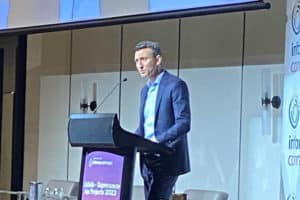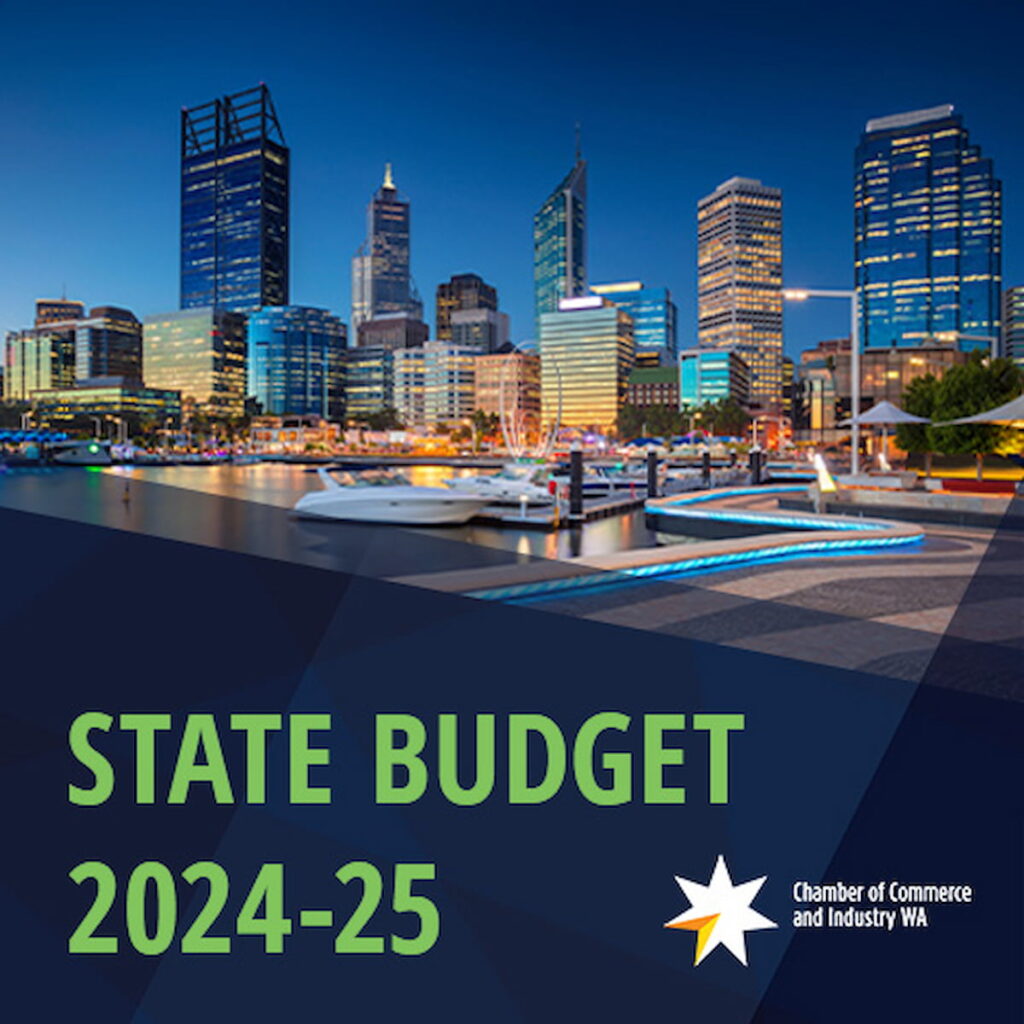
CCIWA Chief Economist Aaron Morey
The Goldfields-Esperance region has the resources, infrastructure and skills to capitalise on “enormous opportunities”, but “the challenges are as significant as the prospects”.
A key concern to business growth in the region is the Federal Government’s industrial relations reforms, says Aaron Morey, CCIWA Chief Economist.
“This region more than any other can play right into the big shifts currently rippling across the global economy,” Morey told the Goldfields-Esperance Major Projects Conference.
“The region has just about everything it needs: industrial land close to major infrastructure, all modes of transportation on offer, high-grade deposits of lithium and other energy materials, a skilled workforce, a significant METS [mining equipment, technology and services] sector, and connections to international markets, including through the strategically-located Esperance Port.
“Unfortunately, there are two areas where the Federal Government is pulling in the opposite direction; that is in industrial relations and environmental approvals.”
IR reforms not helping
The third tranche of the reforms, the Closing Loopholes Bill – currently before Parliament – is most worrying, says Morey.
“Of most concern to CCIWA are the labour hire provisions, known as ‘Same Job, Same Pay’,” he says.
“We were assured by the Federal Government that service contractors would be explicitly excluded. They are anything but.”
WA will be hard hit by these proposed workforce changes, says Morey, as contracting and labour hire are integral to the dominant mining and agricultural sectors.
“This reform will ricochet across the WA economy,” Morey says.
“It will directly increase the costs of businesses that use labour hire and damage the competitiveness of service contractors in the process.
“It will create enormous complexity for the labour hire companies themselves, who will have to manage multiple pay rates for its labour.
“The upshot of this, and something that is so far underappreciated, is you will see the availability of labour hire services diminish as a result.
“CCIWA fully opposes these reforms and is fighting to have them watered down.”
Also on the table are changes to union delegates’ rights, Morey says.
“Under these changes, the Fair Work Commission will effectively be able to allow unions to enter workplaces where there are very few current members for the purposes of recruiting new members,” he says.
“Delegates will also be given powers to represent not just union members, but any member of the workforce.
“And perhaps most galling of all, employers will be required to pay them for workplace delegate training. Expect a lot of training.”
Environmental approvals too long
Morey says lengthy environmental approvals for major projects are hampering growth.
“Our Members are highly frustrated with the time being taken to achieve approvals at both the state and federal levels,” he says.
“Approvals that used to take two-to-three years are now taking four-to-six years.
“While robust regulation is needed to protect our unique environment and cultural heritage, a sensible balance needs to be achieved.”
Morey says the region’s success will require collaborative efforts from businesses and governments.
The governments are “doing some things right”, he says.
“We are optimistic that the Federal Government is moving in the right direction in reforming the nation’s skilled migration system,” Morey says.
“The WA Government has established the WA Investments platform and is looking to streamline approvals for certain projects related to green energy.”
But the Federal Government’s Nature Positive Plan agenda appears to be “moving in the wrong direction”, Morey says.
“Over the past few months we’ve been consulting with our Members in mining, agriculture, tourism, space and defence,” he says.
“Through that we’ve identified the total investment across the State subject to environmental approvals, as well as estimating the projects that are either at risk of being scaled back or abandoned entirely.
“Soon we will release that research, to highlight to the Federal Government just what is at stake for our economy as they proceed with their Nature Positive reforms.
“Without revealing the total amount of investment we’ve identified subject to approval, what I can say is that 45% of that investment is earmarked for the Mid-West and Goldfields-Esperance regions, with the lion’s share earmarked for the latter.”
Are you concerned about the Federal Government’s IR reforms?
Visit our IR Reforms page or get in touch with our workplace experts today by calling our Employee Relations Advice Centre on 9365 7660 or CCIWA Members can book a free consultation with one of our employment lawyers by emailing [email protected].






